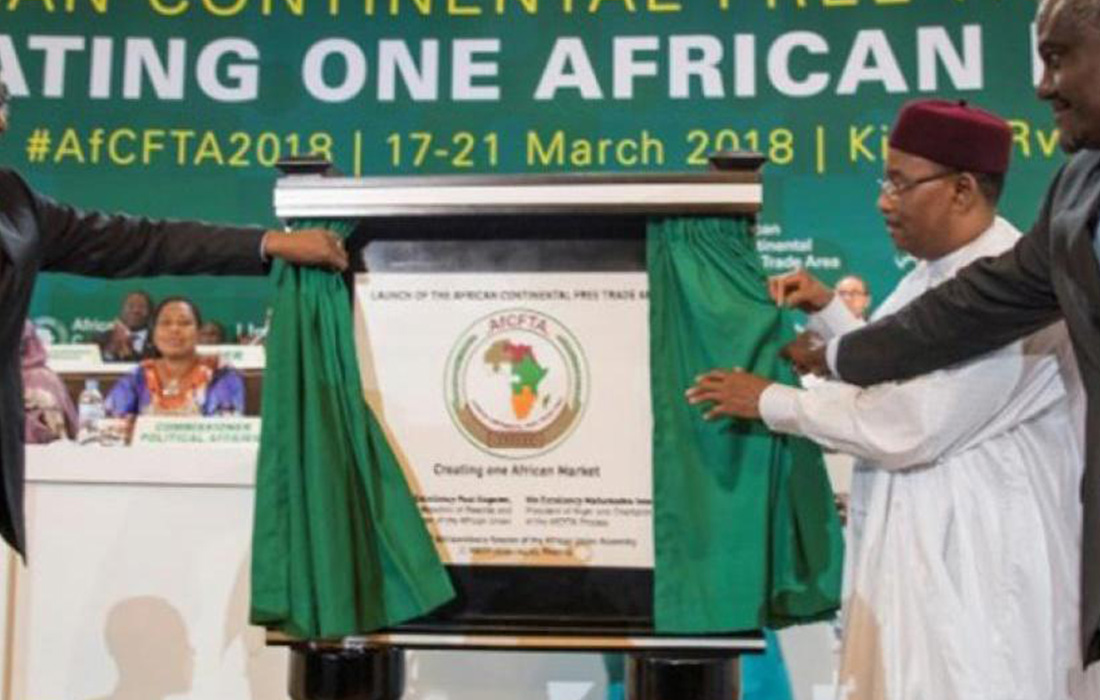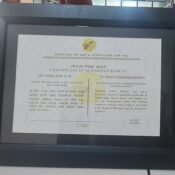
Ethiopia On Pathway to Join Continental Free Trade Area
Ethiopia is negotiating to enter the African Continental Free Trade Area, which aims to create a free, single continental market for goods and services.
Last week, the latest negotiation was held in Cairo, Egypt during the seventh ministerial meeting. Ethiopia was represented by Mamo Meheretu, Chief Trade Negotiator and senior adviser to Prime Minister Abiy Ahmed (PhD), who led a committee composed of professionals from the ministries of Trade, Finance, Revenues and Foreign Affairs.
“We didn’t get into negotiation to accept what is suggested by others,” says Mamo. “We want to the shape the negotiation.”
The negotiation was held prior to the first Intra-African Trade Fair organised by the African Export-Import Bank. Held for seven days, the fair aimed at creating a platform for sharing trade, investment and market information.
Currently, inter-Africa trade stood at 15pc only, while trading among European and Asian countries reached 59pc and 51pc, respectively.
During the opening session, the former Nigerian president, Olusegun Obasanjo, called upon the continent to ratify the agreement.
“It is imperative that all African governments, who believe in Africa’s progress,” Obasanjo said to the gathering, “should not only sign the agreement but should ratify it at once.”
Earlier this year, the African Continental Free Trade Area Agreement was signed by 44 out of 55 African Union member countries. Ethiopia is one of the signatories.
So far only 14 countries have ratified or approved the agreement that included Kenya, Rwanda and Chad. To be placed into full force, the agreement needs ratification by at least 22 countries.
On the latest negotiation, Ethiopia put forward three priorities for negotiation prior to signing the agreement, according to Mamo.
“We want to develop the export and import transaction; boost the service sector, especially the aviation service; and improve the free movement of people,” Mamo told Fortune.
Ethiopia’s total export to African countries is only 20pc while imports from other African countries stood at four percent. Despite efforts made by the Ethiopian government, export earnings were limited to 2.8 billion dollars in the last fiscal year – a shortfall of 45.9pc from the government’s projections.
“By exporting to regional nations and importing material that adds value, we can make a significant difference in the economy,” Mamo argues.
The idea of Continental Free Trade Area was first born in 2012 at the 18th ordinary session of the assembly of Heads of State and Government of the African Union. The assembly also endorsed the proposal on improving intra-Africa trade under seven clusters, including trade policy, facilitation, productive capacity, trade-related infrastructure, trade finance, trade information, and factor market integration.
“We didn’t utilise the African market accesses so far,” Mamo argues. “As we are the pioneers in the Pan African movement, it’s time to a play our role once again in market integration.”
The negotiation has been continued by harmonising with Ethiopia’s laws and trade regulation, according to him.
“We still have a long way to go,” Mamo told Fortune. “But, we have a desire to empower our exports and import and build a predictable market.”
The proceeding of the Cairo meeting and negotiations will be presented to the head of states meeting in February here in Addis Abeba.
“We are still working on the negotiation. Such talks need more time to finalise,” Mamo says.
The negotiation, when successful, is believed to bring together a continent of one billion people and a combined gross domestic product of more than 3.4 trillion dollars.
Read the original article on Addis Fortune.



